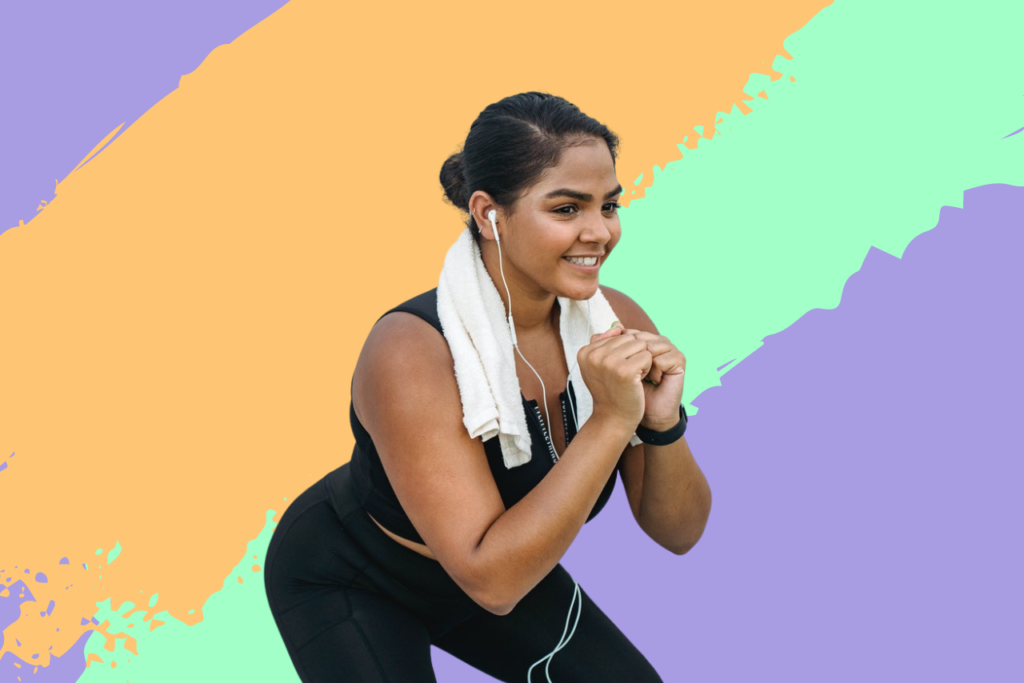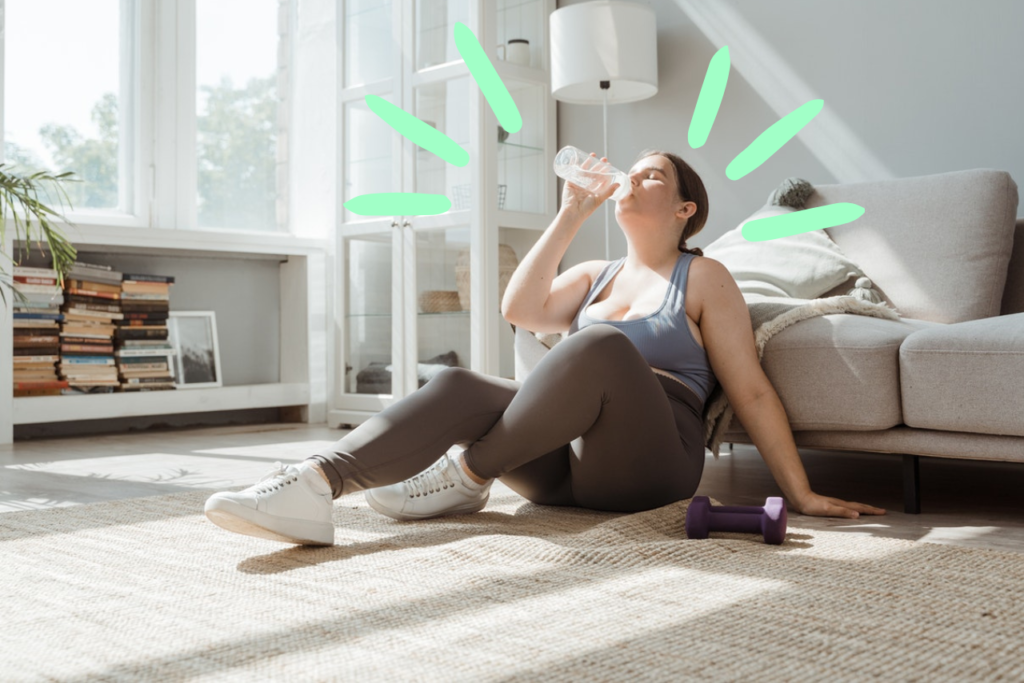Ideal for maximising your next gym session and learning to live more heathily
We’ve all had those days. Even if you’re the keenest runner or most devoted gym enthusiast, sometimes the motivation to get those trainers on and pound the tarmac or treadmill can be hard to find.
Not to worry; it’s how you deal with them that matters.
Most people understand what they have to do so they can enjoy happy and vigorous lives; carve out enough time to engage in physical activity, keep your mind calm and compose, and perhaps balance your diet for good measure.
Finding the energy to do so, however, is a different story. More often than not, the biggest obstacle is inertia. After all, it’s not easy to make changes to ingrained habits.
But as a University of Leeds report published by Science Daily in February 2022 revealed, exercise gets harder the less you do. Keeping in that rhythm, then, is essential.
So, are you a quitter or a winner? Well, the latter has a secret weapon; a regime of pre workout fuelling – both dietary and motivational – to get them primed and ready for a great exercise session.
We’re here to reveal what works for us; our 7 ways to boost energy levels before your workout, IDEAL for maximising your next gym session and learning to live more healthily.
Choose The Right Fuel…
There’s a direct link between what you eat and how you feel. How much of a difference it makes depends on a variety of factors, but the links are impossible to deny. On top of that, your body needs the right type of energy to keep you moving through the motions of your workout with grace and focus.
The perfect pre-workout feed should include protein, healthy fats and complex carbohydrates. These three groups benefit from being slow burning yet energy-rich, giving you that much needed boost to sustain you that little bit longer and push that little bit harder. The best stuff to fuel your fitness push? Many athletes swear by a trail mix, but other dried fruits, nuts (particularly almonds), granola, cornflakes and yoghurt are all ideal pre-workout food.
Ideally, a pre-workout meal should factor in around 40 grams of slow-digesting carbohydrates like sweet potato, buckwheat, lentils, butternut squash or whole-wheat bread. This is because studies have suggested that eating slow-digesting carbs like whole grains can help to burn more fat and boost endurance. And you can’t argue with the science, right? If that sounds like an odd mix of food, you could blend the starchy vegetables into a soup or smoothie.

…& Know Which Foods To Avoid
Just as there are foods perfectly equipped for that pre-workout boost, so are there ingredients and preparations you should be looking to avoid. Unless you want a sluggish, subpar session, that is.
Particularly steer clear of processed foods and sugary treats. Your body burns through both quickly, leading to a burst in energy (probably in the car on the way to the gym) that drops soon after. This can affect both your energy levels and mood, and can be really demoralising just before you start exercising.
If you needed further reason to eat healthily, then be aware that high-fat meals inhibit the ability of nitric oxide to dilate blood vessels during the following four hours, meaning decreased blood flow to muscles and less of a muscle pump.
Consider Natural Supplements To Aid Muscle Recovery
There are several supplements out there that you can take to boost your energy pre workout and aid the natural recovery of your muscles afterwards. Primed for kicking those energy levels up a notch are those caffeine capsules we already mentioned, as well as fuelling your pre workout with Creatine, a popular dietary supplement thought to increase performance. The natural occurring amino acid Citrulline is also popular among gymgoers.
Equally important are post gym supplements, particularly those which boast anti-inflammatory properties, which can reduce post-workout soreness. Omega 3 fish oil is particularly good for this, and recently, some athletes have even been turning to cannabidiol to help in speeding up the post-workout recovery process.
Of course, consult your doctor or healthcare provider prior to incorporating this supplement into your treatment, and note that studies into its efficacy are still ongoing and largely inconclusive.
Get An Extra Boost
Caffeine is the world’s favourite pick-me-up, and for good reason. Not only does it taste bloody great and make you feel that little bit sharper, but it also increases metabolic function, helping your body burn fat and energy faster. Drinking coffee or an energy drink is a great way to get pumped for a workout, then.
Ideal for both endurance and bodybuilding, make sure you’re drinking that cup of Joe an hour or so prior to your morning workout to get the most from its energy boost; coffee actually takes a little while to fully ‘kick in’.
If you can’t stomach the stuff, firstly; are you ok? Secondly, caffeine supplements of around 200-400 mg will do the same job, stimulating your central nervous system to make you lift heavier, and run and cycle faster. What’s more, caffeine helps to increase fat-burning and endurance, and contributes to diminished muscle pain during training. All this means you’ll be pushing that much harder, lifting heavier and generally hitting your goals head on. Besides caffeine, pre-workout supplements can boost your exercise performance and bring you results you want.

Stay Hydrated
While coffee and energy drinks can also help you stay hydrated, they can’t replace good old water. Being parched has all sorts of negative health effects, including inducing fatigue and confusion. In the gym, this isn’t what you want. If you are having a hard time fighting brain fogs before or during a workout, drinking more water might be the solution.
One of the biggest mistakes gymgoers make is to allow themselves to be dehydrated when they’re working out, which results in them losing bodyweight in fluids and making exercise feel harder, in turn reducing productivity and the body’s ability to recover properly.
Professionals recommend that you drink water regularly throughout the day to stay hydrated. As a general rule, drink 300-500 ml 2 hours before your workout, 80-100 ml 10 minutes before training, 100-150 ml every 10-15 minutes during exercise and more than 200 ml after training. To make sure you are drinking enough water within your workout to restore the fluids you lose, weigh yourself before and after physical activity. You shouldn’t lose more than 2% of bodyweight.
Since exercise is a source of stress that increases levels of cortisol in an organism, consider drinking up to four cups of tea during the day, too. Studies suggest that drinking tea can help to lower levels of the catabolic hormone after workouts, helping to improve performance.

Redose On Motivation
Not all pre-workout energy-boosting occurs in the gut. A lot of work also happens in the mind. On those low motivation days, remind yourself of the reasons you started working out.
Whether you’re trying to lose weight, bulk up, or improve your overall health, it’s always important to keep your goals in mind. When you get down to it, they can help you persevere and encourage you to continue with changes you’ve made or new habits you’ve adopted, especially when things get tough.
What will work for you here depends on the nature of your motivation. It can be pictures of your ideal body, motivational quotes, songs that particularly touch you, your desire for improved mental health, a love interest or maybe even a scene from your favourite movie. Whatever made you start working out, use it to help you keep moving and motivated on rough days.
If you’re planning on working out more often, it can be beneficial to consider joining a class because it’ll add more structure to the program, enable you to exercise safely, boost your motivation, and allow you to focus and become more accountable.
Make A Great Workout Playlist
There’s no denying the effect that music has on people’s workouts; it can be a superb motivational tool and energy booster, and as such, an essential weapon in the gymgoer’s arsenal.
In fact, in a 1997 study regarding the effects of music on exercise, researchers Karageorghis and Terry found that “altering the mind’s arousal state with music will result in an increased exercise performance, as if the music is ‘psyching’ one up to perform exercise better”. Wow.
Of course, it depends on what’s playing on your Air Pods. Tempo matters; a recent study found that when female runners hear songs over 170 beats per minute, they put more effort into their exercise.
Funnily enough, that’s not even that fast paced; good news for those who can’t stand techno and speed metal. Just a handful of great songs which clock in over that pace include Paper Planes by M.I.A, Clint Eastwood by Gorillaz and David Bowie’s Young Americans. Now that’s a lovely, eclectic mix to get the heart rate up.
The Bottom Line
The next time you’re tempted to skip leg day, or you’re lacking the motivation to get out their and beat your 5km personal best, remember that there are ways and means to give your energy a boost. We’ll see you on the treadmill tomorrow, same time, same place?





